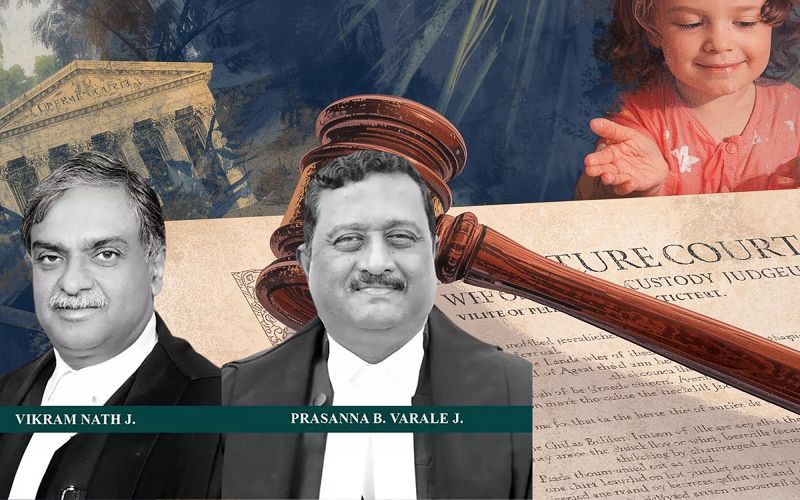In a landmark decision, the Supreme Court of India has addressed the complex and sensitive issue of child custody in the case of Neethu B. @ Neethu Baby Mathew v. Rajesh Kumar. The judgment reflects the court's commitment to prioritizing the welfare of the child above all else, especially in custody disputes where emotional and psychological factors play a crucial role.
Background of the Case:
The petitioner, Neethu B., and the respondent, Rajesh Kumar, married in 2011 and had a son in 2012. Following marital differences, they separated in 2013 and mutually agreed upon divorce terms, which included custody arrangements for their child. The child was to remain with the mother, while the father had visitation rights. Neethu remarried in 2016 and was planning to relocate to Malaysia, which led to the respondent seeking permanent custody of the child.
Supreme Court's Approach to Review:
The Supreme Court invoked its review jurisdiction under Article 137 of the Constitution, citing new psychological evidence that revealed the child was at high risk for separation anxiety disorder due to the impending change in custody. The court recognized the psychological reports as substantial new evidence, warranting a review of the previous decision that awarded custody to the father.
Paramount Consideration of Child’s Welfare:
The judgment underscored the principle that the welfare of the child is the paramount consideration in custody disputes. The court emphasized that custody orders are interlocutory by nature and should be flexible to adapt to changing circumstances and the evolving needs of the child. The court's decision to restore custody to the mother was influenced by the stable and nurturing environment she provided, as well as the child's strong emotional bond with her.
Visitation Rights and Gradual Bonding:
Acknowledging the biological father's rights, the court granted him visitation rights to facilitate gradual bonding with the child. The respondent was allowed virtual interactions twice a week and physical visitation once a weekend, with specific guidelines to ensure a non-disruptive experience for the child. The court highlighted the importance of both parents being involved in the child's life for holistic development.
Guidance for Future Custody Arrangements:
The judgment also provided detailed directions regarding the visitation schedule, foreign travel permissions, and ongoing psychological assessments to monitor the child's well-being. The court advised both parents to prioritize the child's emotional health and foster a supportive environment that encourages positive interactions with both parents.
Conclusion:
This Supreme Court judgment serves as a critical reminder of the dynamic nature of child custody arrangements, where the child's best interests must remain the focal point. The court's sensitivity to the psychological impact of custody changes on the child sets a precedent for future cases, ensuring that legal decisions align with the emotional and developmental needs of minors. The judgment exemplifies the delicate balance courts must maintain between legal principles and the unique circumstances of each case to safeguard the welfare of children in custody disputes.
Neethu B. @ Neethu Baby Mathew v. Rajesh Kumar, (SC) : Law Finder Doc Id # 2750880




